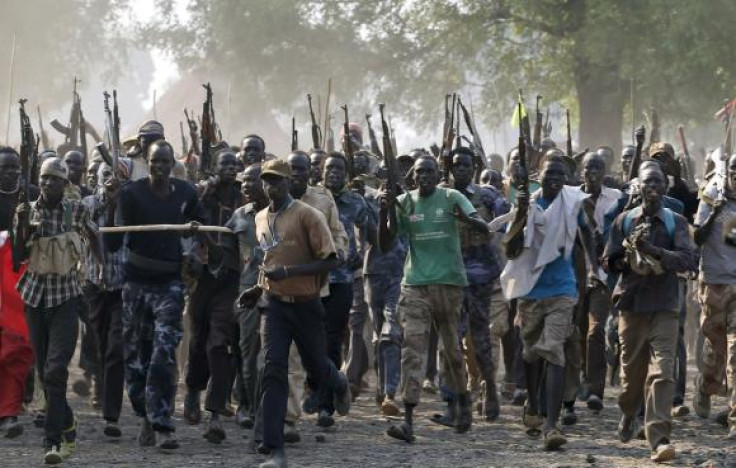South Sudan Genocide an Abomination and Betrayal, Says Washington

The ongoing genocide in South Sudan is an "abomination" and "betrayal" of the people by their leaders, the White House has said.
The US statement comes a few days after rebels attacked Unity State capital Bentiu, killing hundreds of civilians, including women and children.
The oil-rich town had previously fallen to rebel forces in December, but was regained by government troops.
"We are horrified by reports out of South Sudan that fighters aligned with rebel leader Riek Machar massacred hundreds of innocent civilians last week in Bentiu," White House spokesman Jay Carney said.
"Images and accounts of the attacks shock the conscience: Stacks of bodies found dead inside a mosque, patients murdered at a hospital, and dozens more shot and killed in the streets and at a church - apparently due to their ethnicity and nationality - while hate speech was broadcast on local radio."
Carney added that US officials were also appalled by an armed attack on the UN camp in Bor, Jonglei State, in which at least 58 people were killed.
"These acts of violence are an abomination. They are a betrayal of the trust the South Sudanese people have put in their leaders," Carney said.
The conflict in South Sudan started last December when President Salva Kiir, of the ethnic group Dinka, fired former vice-President Riek Machar, an ethnic Nuer, and accused him of plotting to overthrow the regime.
Machar denied the accusation and accused Kiir of carrying out violent purges.
The accusations sparked violence among the two ethnic groups causing the death of thousands and leaving more than a million displaced.
A January ceasefire deal has failed to halt violence and, since then, peace negotiations have plunged into a stalemate.
Nearly five months after the conflict started, a report by the UN mission in South Sudan (UNMISS) warned that hundreds of civilians are being killed due to their ethnic origins and nationality.
UNMISS condemned the target killings and the use of radio stations to broadcast hate speech, during which men from one community are called to commit vengeful sexual violence against women from another community.
China, a major investor in South Sudan's oil industry, also expressed concern about the violence, calling for political dialogue.
"We also ask that the South Sudanese authorities provide protection to China's reasonable rights in South Sudan and the safety of Chinese nationals," Reuters news agency quoted foreign ministry spokesman Qin Gang as saying.
© Copyright IBTimes 2024. All rights reserved.







